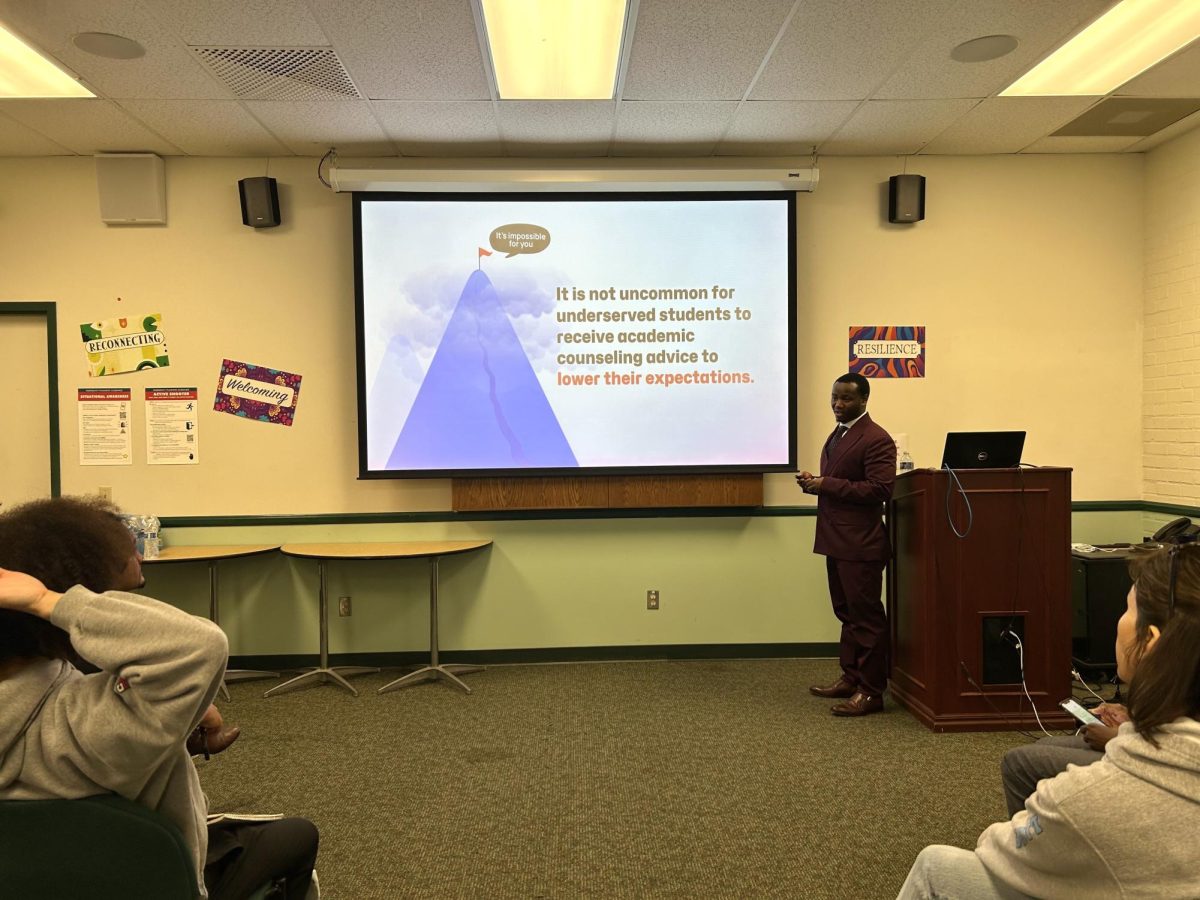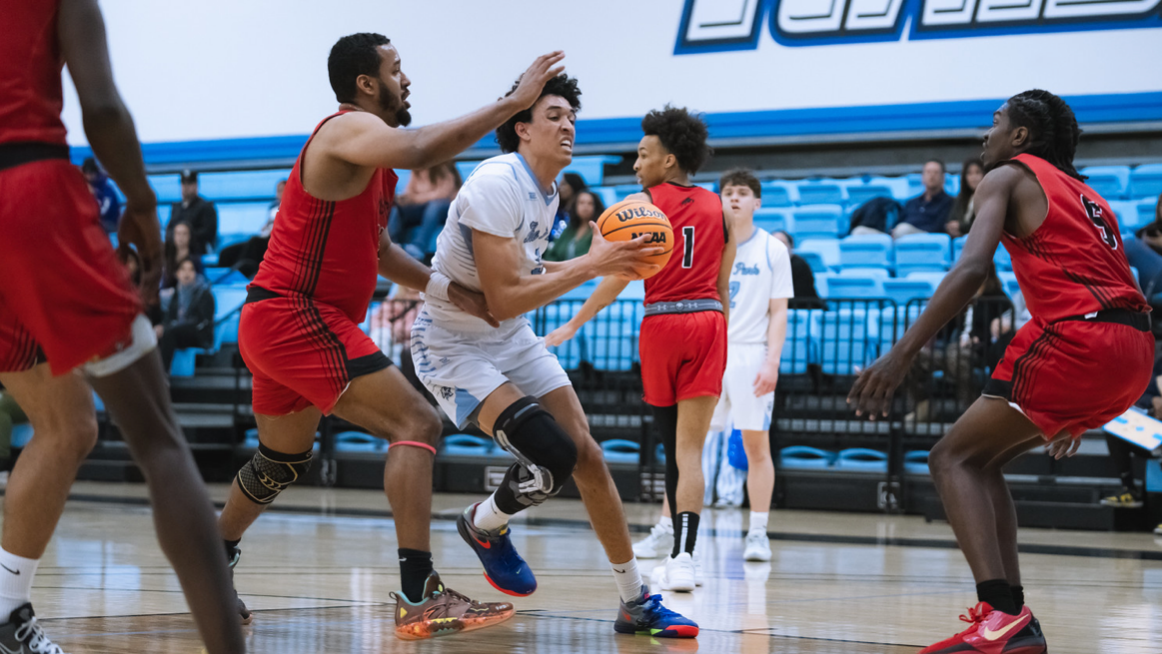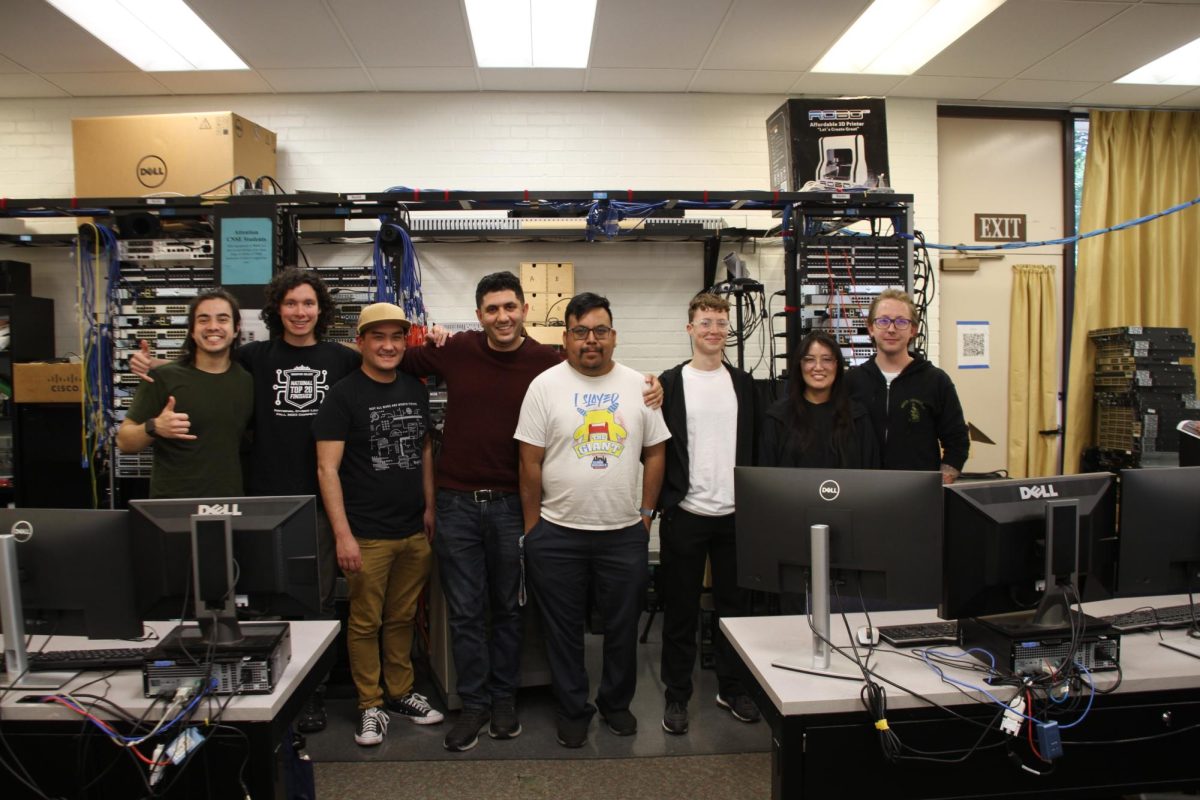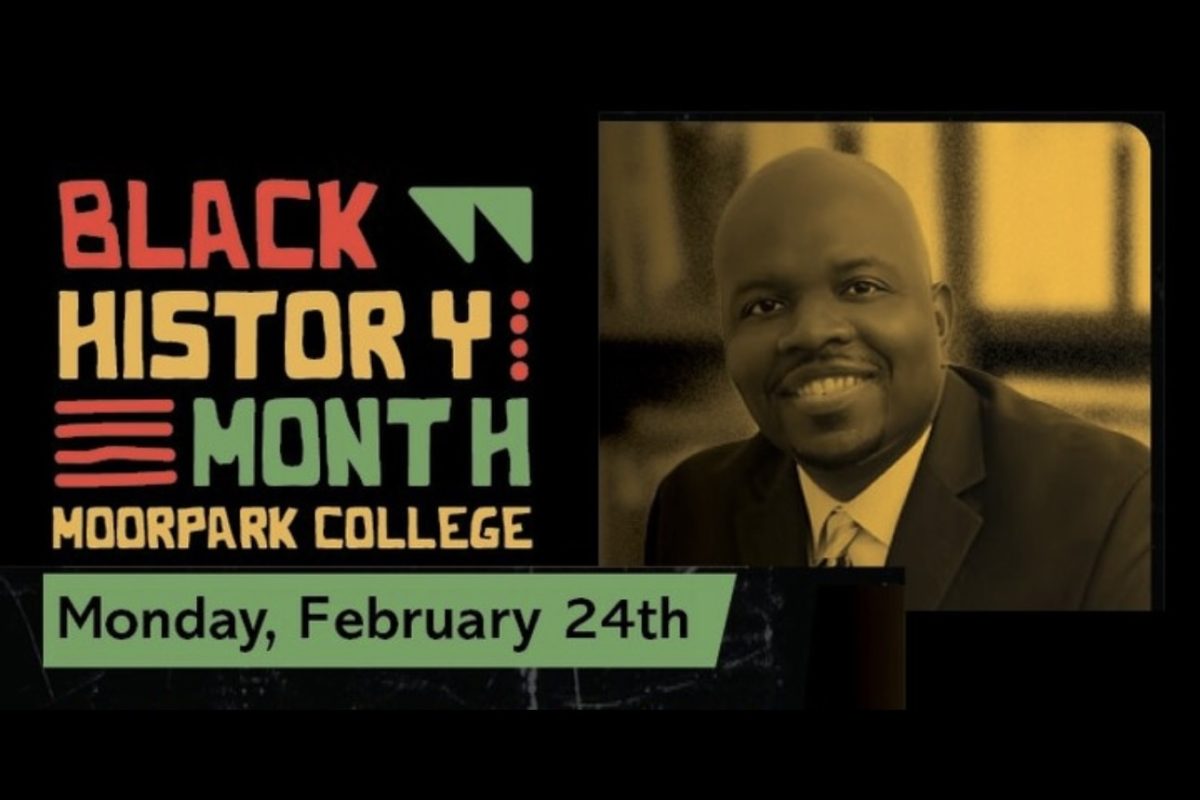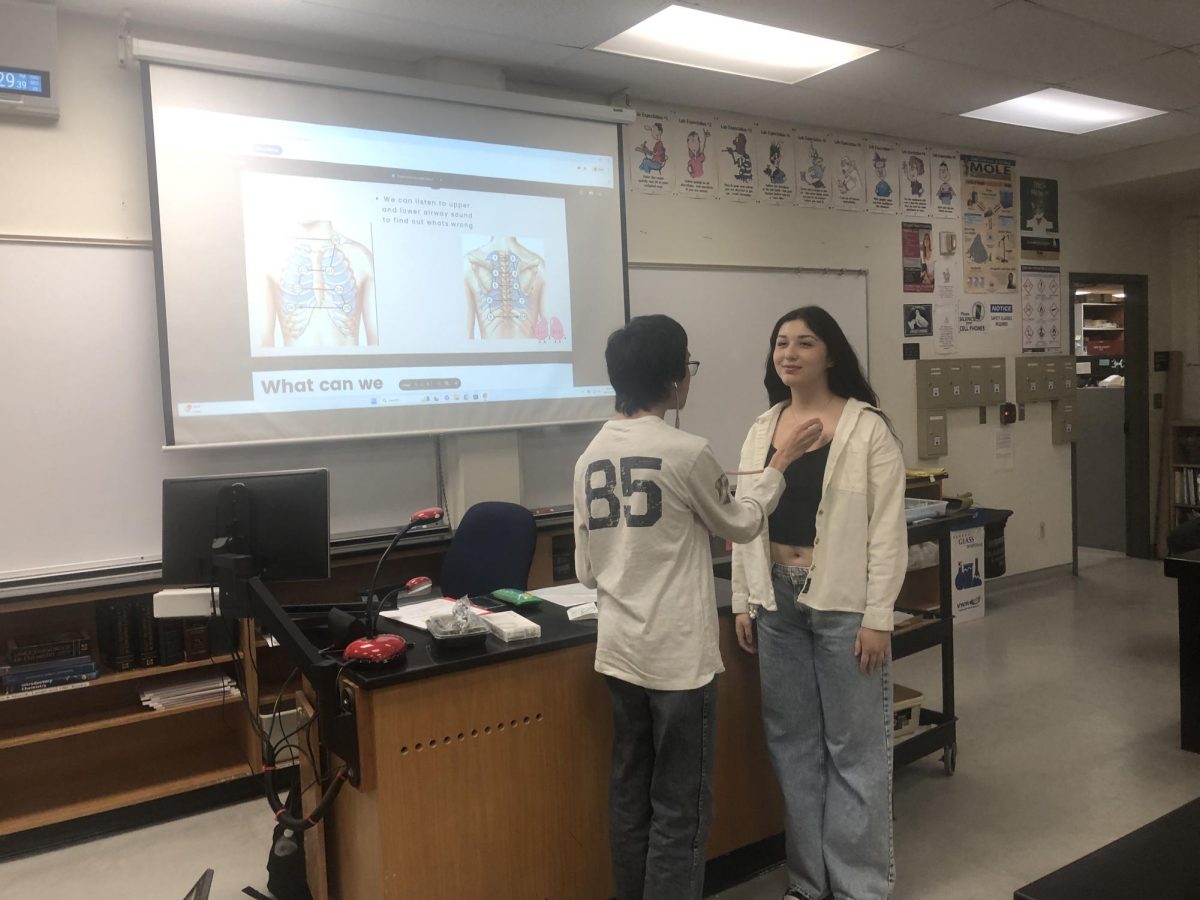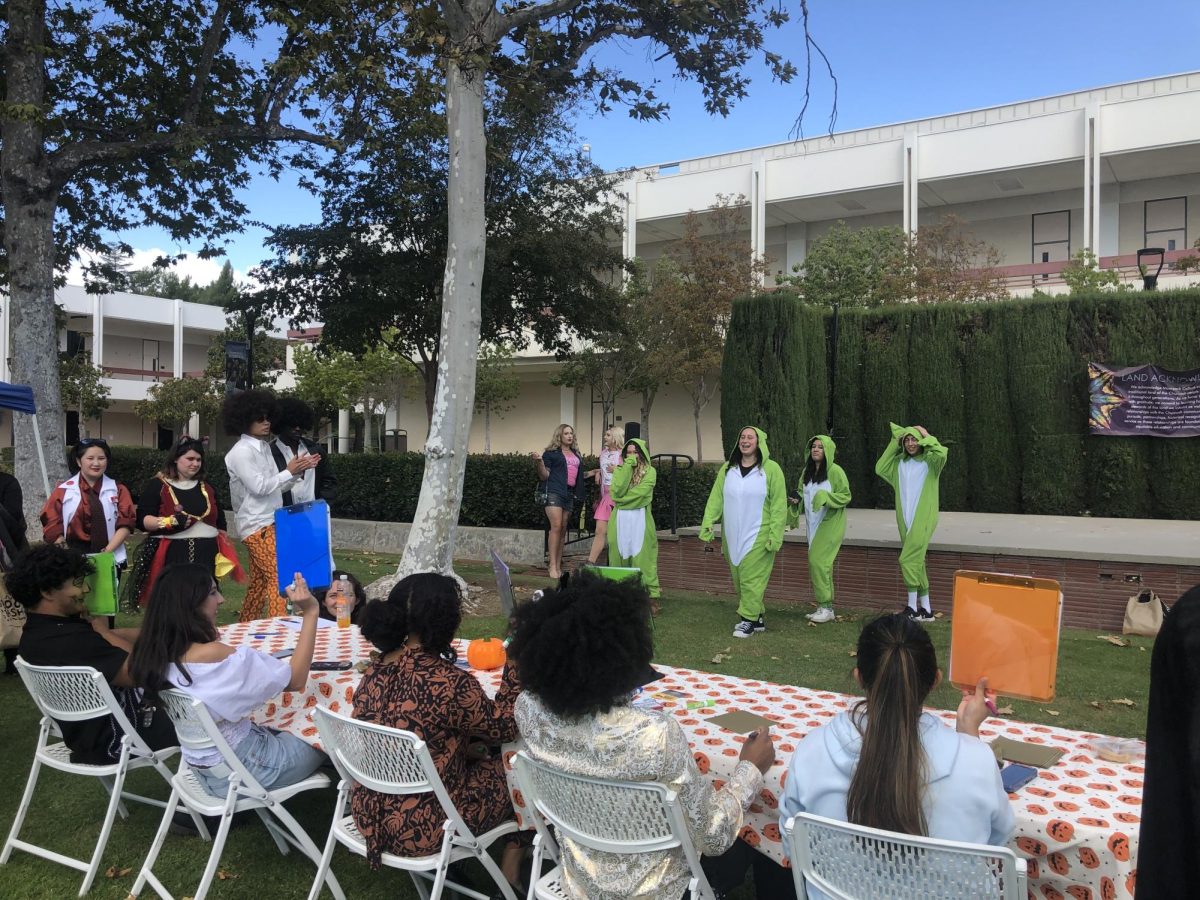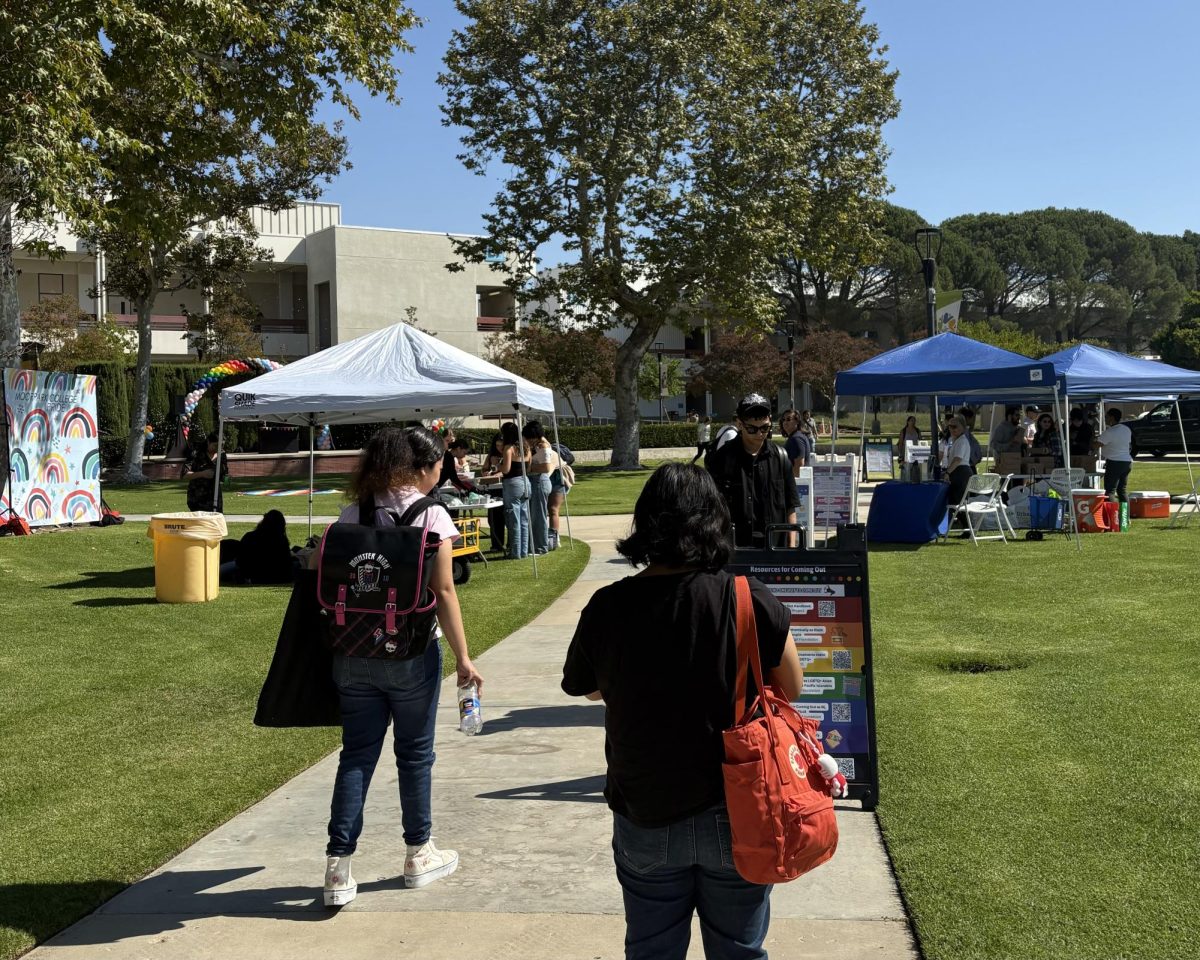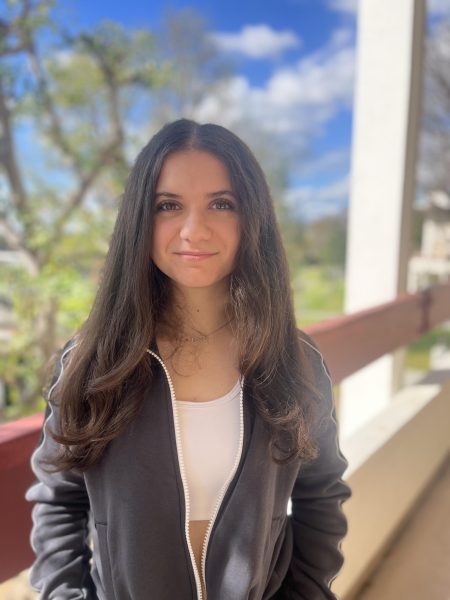As part of Moorpark College’s 2024 Black History Month celebration, professor Wilson Nitunga led the student workshop, “Intentional Defiance: Charting Your Path to Success and Rising Above the Means,” on Feb. 9, sharing his personal experiences and strategies for educational success.
Wilson Kubwayo Nitunga has a very impactful story himself. Nitunga was born in Burundi, a small country in Eastern Africa, and at the age of two, a civil war took place. As he and his family were trying to get out and get away, Nitunga and his father were separated from his mother and siblings.
“My dad put me on his back and began running… There’s a point where he’s running, and after running for so long, he could not feel like he was carrying me– like he almost forgot. Then all of a sudden, he heard a bubble from my stomach, and he stopped to check on me– if I was dead or alive,” Nitunga shared.
Nitunga said that in this situation, he doesn’t know what other people would’ve done, or what decisions they would have made, but shared what his father did.
“My dad did not give up on me. He made a decision: I will either die with my son or be saved with him,” Nitunga explained.
Nitunga then spent ten years in Tanzania, one of Burundi’s bordering countries, in a refugee camp before his family moved to Tucson, Arizona, where he spent some of his school life until he and his family relocated to Sioux Falls, South Dakota.
Now, Nitunga is a professor at Portland Community College, and his experiences gave him a different view on life as a whole which he now shares with his students.
Nitunga spoke about an idea he calls a “mind virus.” He explained that the mind virus is a negative way of thinking based on the negative experiences and circumstances that take place in someone’s life. This method of thinking can prevent students, for example, immigrant or refugee students, from reaching their full potential.
The professor himself has experienced this way of thinking, especially when he came to the United States and started attending school. Nitunga’s mentality was that he’d always been poor, and would never be rich. “I’m from one of the poorest countries in the world,” he says, and when he started doing well in school but faced racism, it was almost a confirmation of his negative thoughts.
At one point in his high school career, Nitunga decided to make a change and try to become the best student he possibly could.
Moorpark College student Angelica Urbas asked Nitunga how he was able to “switch it,” and what brought him to want to become a better student, as that motivation aspect can be difficult for many.
He explained that in the experience of many “underserved students,” they will receive advice from their academic counselors to lower their expectations, whether it pertains to what university they will attend, to what career they should pursue. This is when you have to practice intentional defiance.
In a way, to practice intentional defiance in this case, you have to stop listening. Don’t listen to the people telling you that you won’t succeed, or that it’ll be harder for you to be successful in life because of your personal experiences. Stop listening and show them that you are capable of success in higher education and beyond.
Nitunga also emphasized the importance of having confidence, both in your school career and beyond. He noted that he came into the U.S. school system with a heavy accent, but had to work with everybody and kind of “fit in,” which he admitted took a lot of confidence for a high school student.
Toktam Rashidkordestani, a student at Moorpark College, shared her own experience regarding this topic at Nitunga’s workshop. Rashidkordestani herself moved here from Iran and began to go to school in the U.S. only a few years ago, continuing to improve her English. She mentioned that in her experience, it’s hard to have the confidence to speak to other students in her classes.
“Students are almost like robots; they walk into class, sit down, listen to the professor speak, and then just leave the class. There’s no interaction between them either in class or after class during breaks,” Rashidkordestani explained.
Nitunga added that while it may be hard for students to break that barrier and interact with their peers, the key is to be able to adapt to this newer environment and learn how to navigate to create and keep more social connections.
The ideas and knowledge that Nitunga shared in this workshop can be implemented in both the lives of students in their academic careers and their future endeavors as well.
Moorpark College will continue to hold events to celebrate Black History Month for the remainder of the month. For more information on the agenda, click here.

